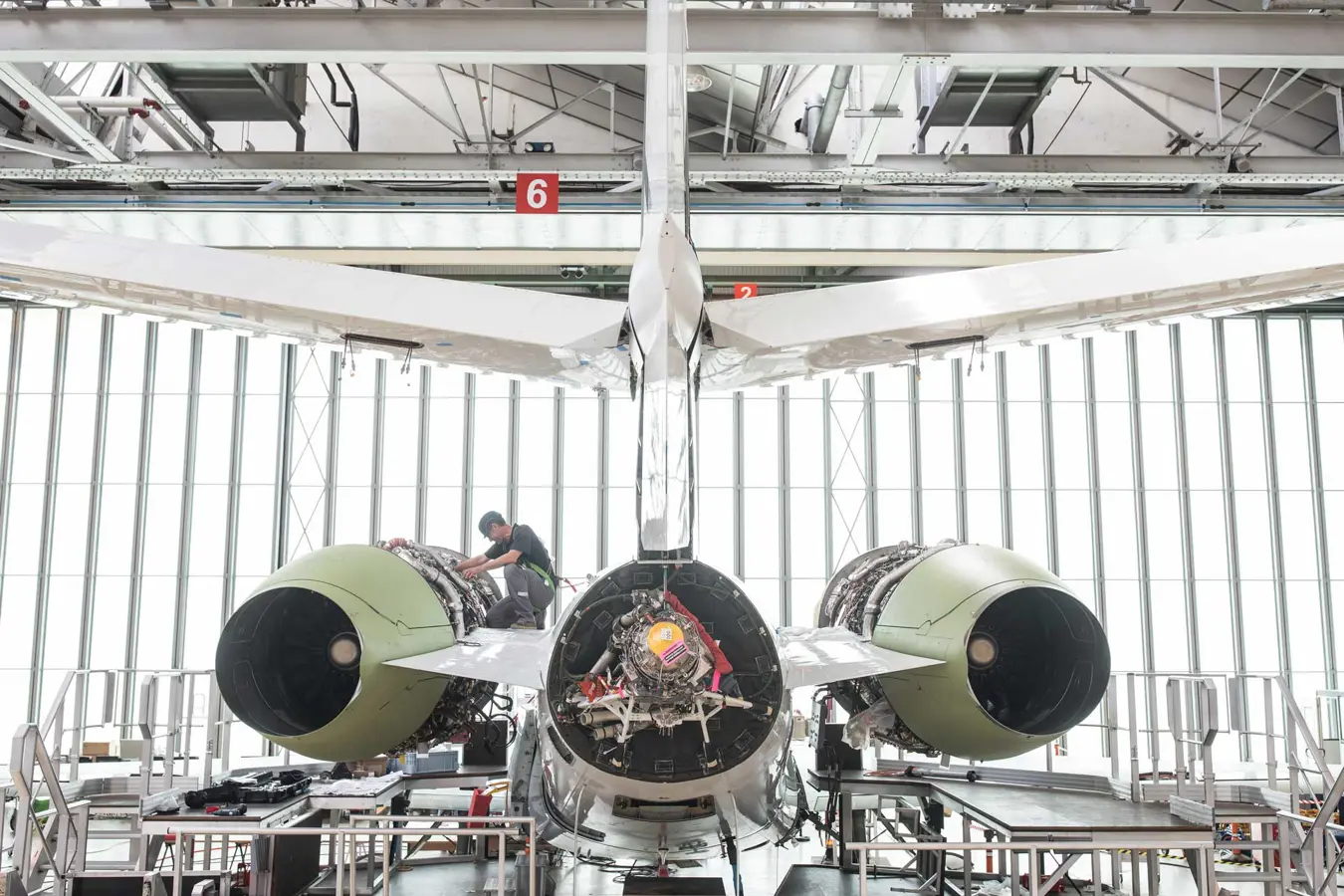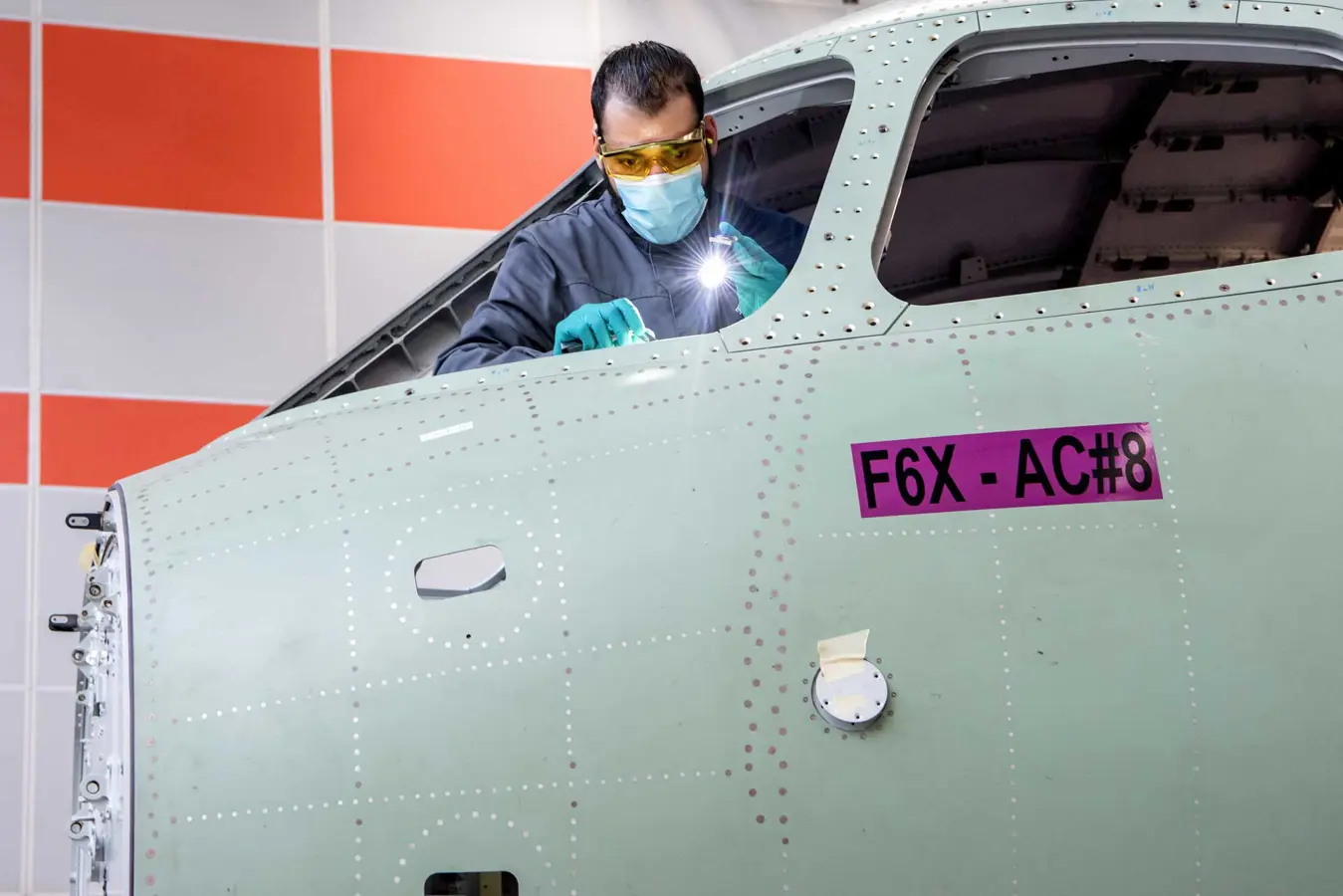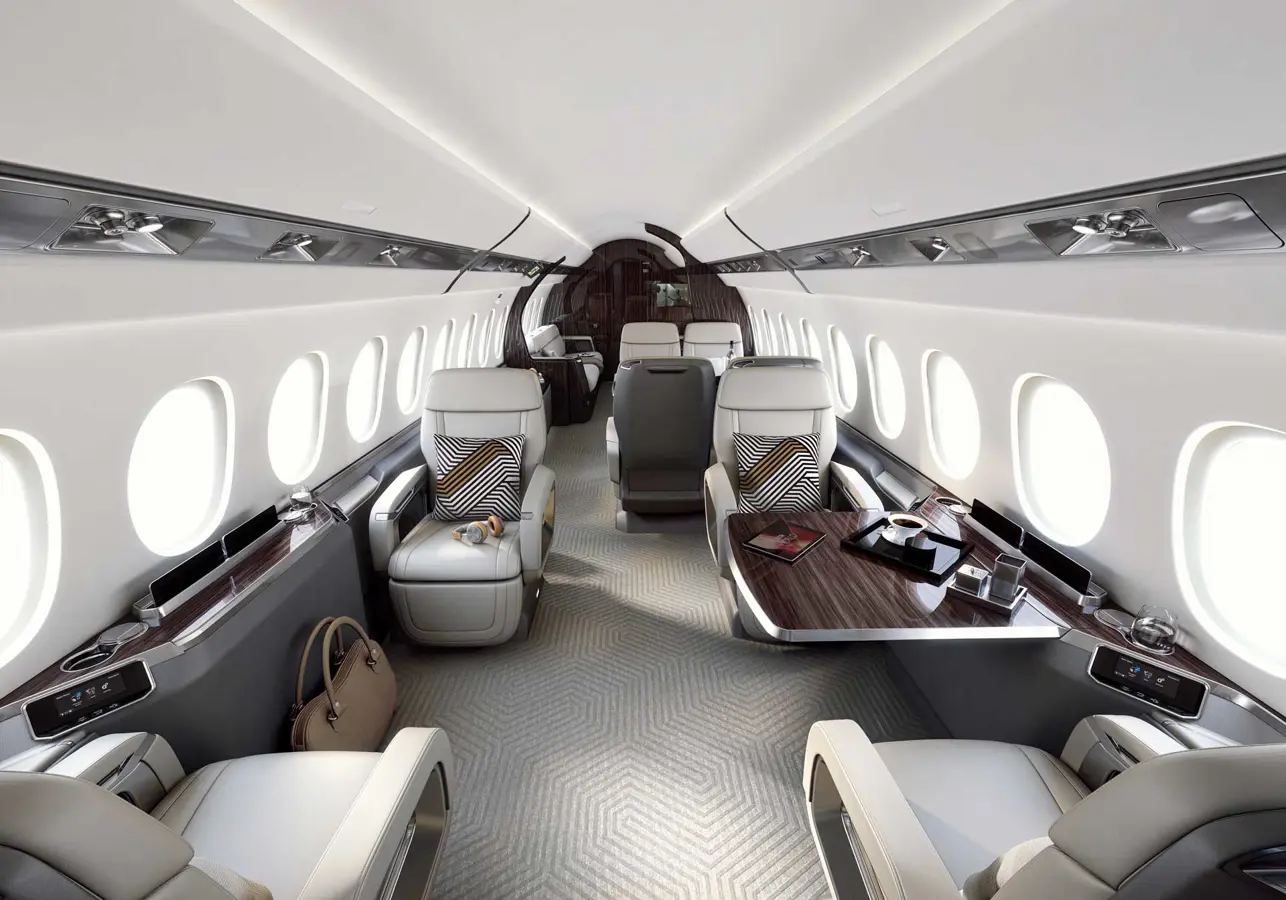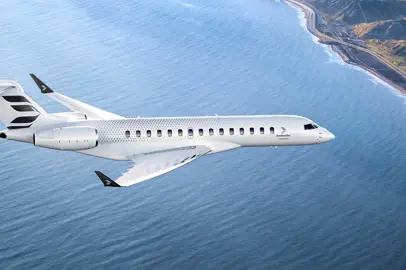11 July 2020
Dassault’s Falcon 6X on track for first flight
Program moves forward despite pandemic complications
Dassault Aviation is making steady progress toward an early 2021 planned first flight for its latest and roomiest aircraft, the Falcon 6X, despite the upheaval caused by the coronavirus epidemic.
“Bringing the Falcon 6X to market on schedule is a top priority for the company. Our planning and production staff have been diligent and resourceful in adapting procedures to new sanitary guidelines to keep this program running smoothly,” said Dassault Aviation Chairman and CEO Eric Trappier. “Our suppliers have also made extraordinary efforts to support us. We are grateful to them all.”

Falcon 6X. Photo: Copyright © Dassault Aviation.
The first of the three pre-production aircraft that will take part in flight certification has been powered up and has entered ground testing. Aircraft no. 2 and 3 are in advanced stages of assembly and long cycle parts production for serialized production has already begun. Certification and entry into service are set for 2022, in keeping with the original timetable. The second aircraft recently had its wings mated to the fuselage and the third aircraft is in the early stages of final assembly. Each will be heavily instrumented and, like aircraft no. 1, will be capable of performing aerodynamic, performance and systems testing.
Aircraft no. 3 will receive a full interior to evaluate systems functionality, acoustics, airflow, comfort and other factors. Interior furnishings, environmental systems, electronics and other equipment are currently being tested in a ground test rig prior to installation on the aircraft.


Falcon 6X. Photo: Copyright © Dassault Aviation.
Electric, hydraulic and fuel system tests have been completed and testing of the Falcon 6X’s advanced digital flight control system have begun. Ground fatigue and damage tolerance testing has also been initiated. This test cycle will later be extended to include stress testing to maximum load limits and beyond.
The Falcon 6X sets a new industry benchmark for cabin comfort, long-range performance and flying efficiency. It offers the largest cabin cross section of any purpose-built business jet (6’6” tall by 8’6” wide) and its 5,500 nautical mile range capability allows it to connect far flung routes such as Paris to Tokyo or Los Angeles to Moscow. The new twinjet is also equipped with the latest innovative technologies, including a new-generation Digital Flight Control System (DFCS) that provides unmatched maneuverability in flight. The new DFCS controls all moving surfaces including a new multifunction control area called a flaperon, adapted from Dassault fighter aircraft.

Falcon 6X. Photo: Copyright © Dassault Aviation.
PW812D engine program also on target. Assembly of Falcon 6X engines and nacelles is ramping up in parallel with aircraft production. The aircraft’s advanced Pratt & Whitney Canada PW812D engine completed an initial airborne test campaign earlier this year aboard Pratt & Whitney’s Boeing 747 testbed aircraft and a second series of flight tests are scheduled this summer. To date the PW812D has accumulated over 200 hours in the air and more than 1,600 hours on the ground. It has also completed initial certification tests, including bird strike, ice ingestion and blade-off tests. The PW1200G core engine shared by the PW812D has accumulated more than 16,000 hours running time. The PW800 series exceeds ICAO standards for NOx emissions by a double-digit margin and generates ultra-low levels of unburned hydrocarbons and smoke. The PW812D will meet future CO2 regulations and achieve Stage 4 noise requirements with significant margin.
Production operations at Dassault’s Bordeaux-Merignac, France main assembly facility are now back to normal after a brief disruption due to the Covid-19 crisis. The company used the time to devise safer procedures with smaller crews on the production floor, now working once again in two shifts. The Dassault flight test team is currently coordinating with EASA and the FAA to finalize the flight test and validation program.
Edited by Lisa Maria River
Text source, photos: © Dassault Aviation Press Office
You might be interested in
Business & General aviation

Jets
Bombardier and Elie Saab team up for an exclusive design of the Global 8000
Haute couture sartorial elegance and cutting-edge design and engineering come together in the new cabin of the luxury business jet, arriving in 2026, to offer an exclusive, tailor-made and unprecedented travel experience
Business & General aviation

Jets
Dassault Aviation at Dubai Airshow
Falcon 6X and Falcon 8X business jets on display: technological excellence, comfort and record range in the Middle East sky
Business & General aviation

Jets
Bombardier Global 8000 sets a new record in in-flight comfort
The world's fastest, longest-range business jet redefines standards of well-being with the lowest cabin altitude ever achieved in the industry: 2,691 feet at 41,000 feet altitude







